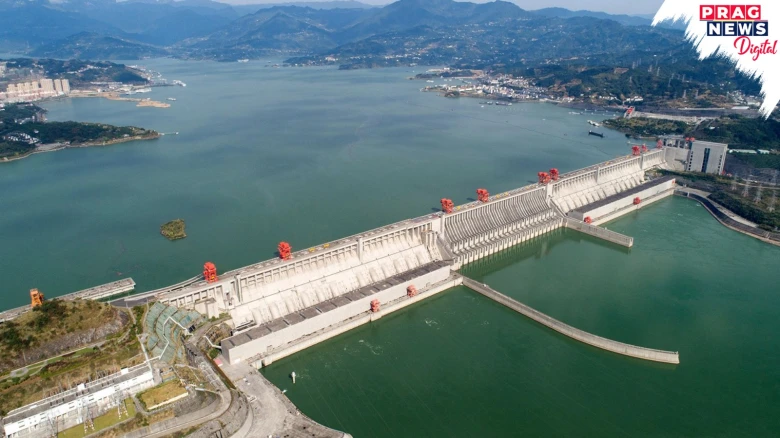National

Digital Desk: India expressed its concerns over the World's largest dam project by China on the Yarlung-Tsangpo River, the Tibetan name of Brahmaputra. Ministry of External Affairs (MEA) spokesperson Randhir Jaiswal in a press briefing strongly reacted to China's hydropower project in the Tibet Autonomous Region of China.
In the press conference, Randhir Jaiswal said, "We will continue to monitor and take necessary measures to protect our interests. As a lower riparian state with established user rights to the waters of the river, we have consistently expressed, through expert-level as well as diplomatic channels, our views and concerns to the Chinese side over mega projects on rivers in their territory."
According to a report by Xinhua, China approved the construction of the World's largest hydropower project on the Brahmaputra River. The mega project was approved by the Chinese Government on December 25. This project will generate 60,000 MW of power, which has the capacity to produce 3 times the amount of electricity as the Three Gorges Dam on the Yangtze in central China.
According to reports, the Government of India is in continuous discussions with the Chinese Government regarding the matter. Calling this an irresponsible project, Ashok Kantha, a former Indian Ambassador to China said that this dam will have a large reservoir in a very difficult area. According to him, it is a very risky and dangerous project by China.
The Chief Minister of Assam, Dr. Himanta Biswa Sarma said that this hydropower project will make the Brahmaputra Ecosystem completely fragile. The Brahmaputra river will become dry so the nearest areas have to depend on the rainwater.
The Chief Minister of Arunachal Pradesh, Pema Khandu expressed his concerns and said that the consequences of the dam will be severe for the people.
Taking a jibe at the BJP-led Central Government, AIMIM President Asaduddin Owaisi said that the government is scared of China. He questioned the Centre for its inability to stop the construction of the dam, which can impact the people who live in the downstream states of the Brahmaputra River.
However, the neighboring country China defended its plan by saying that it has no negative impact on the lower riparian state. They also added that decades of studies had been done before deciding to build a dam near Brahmaputra. The project is estimated to cost 137 billion dollars. China further said that the dam will help to move away from conventional energy sources and achieve net carbon neutrality by 2060.
Experts think that the world's largest hydropower dam could affect billions of people who live in the lower riparian state. It could impact the water flowing downstream as most of the water in the Brahmaputra system comes from the Tibet side. The flow of sand and soil carried along by flowing water which is crucial for agriculture can be impacted and changes in the flow of rivers can impact the biodiversity of the nearest area. As the Brahmaputra River passes through Assam and Arunachal Pradesh, it might impact the ecological balance of these two states.
Leave A Comment